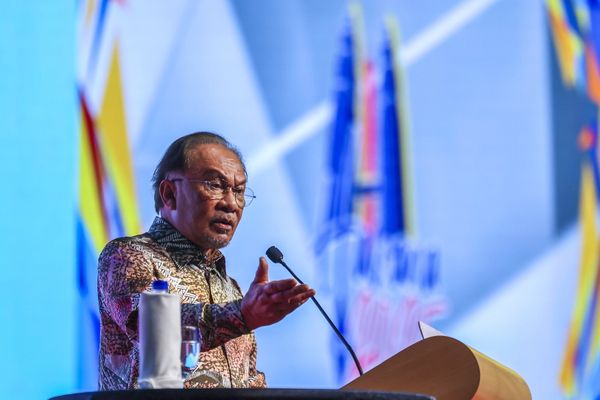KUALA LUMPUR, June 16 — Prime Minister Datuk Seri Anwar Ibrahim said there is no need to dissolve the Economy Ministry, and that new ministerial appointments will be made in due time.
Anwar added that the Economy Ministry, which was formerly the Economic Planning Unit under the Prime Minister’s Department, was elevated to a full ministry during Pakatan Harapan’s first tenure.
“There is no issue of a change (in ministerial structure). The structure is determined by the Cabinet and me, so for now, I don’t see any need for a reshuffle,” he told reporters after officiating Energy Asia 2025 at the Kuala Lumpur Convention Centre today.
On the 13th Malaysia Plan, scheduled to be tabled in Parliament this July, Anwar said it is a collective responsibility of the Cabinet, with the Economy Ministry as the main secretariat.
He added that adjustments and reforms are underway in light of the changing economic landscape, including tariff revisions impacting key national projections.
“Last week, we also held a meeting to hear input from ministries on policy adjustments being introduced,” he said.
On May 28, Economy Minister Datuk Seri Mohd Rafizi Ramli tendered his resignation and went on leave, which ends today.
On the resignation of Natural Resources and Environmental Sustainability Minister Nik Nazmi Nik Ahmad, Anwar said the matter has not been finalised.
“I usually wait, give them a chance (to) reflect, consider, and I will give my opinion. If possible, I’d like him to continue his service; there’s still time before his resignation takes effect,” he said.
Nik Nazmi also tendered his resignation on May 28 and is on leave until July 3.
When asked about the proposed adjustments involving RON95 prices, Anwar reiterated that it will not affect 85 to 90 per cent of the population.
He said the opposition’s claims that people are suffering due to the subsidy rationalisation policy are nothing more than desperate political gimmicks aimed at creating a negative image of the government.
Anwar said the government’s move towards subsidy rationalisation is a critical step to ensure sufficient national resources are channelled effectively to benefit the lower-income group.
“We want to have enough resources to help the poor, to enhance the quality of education and to provide better public services, including in healthcare,” he said.
The Prime Minister added that the government is committed to implementing the policy despite criticisms, as it forms part of broader economic reforms aimed at long-term fiscal sustainability.
— Bernama




